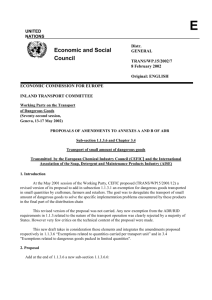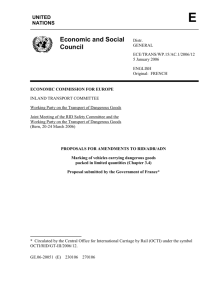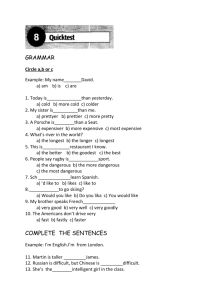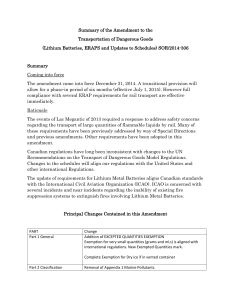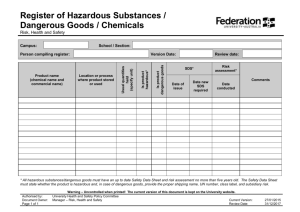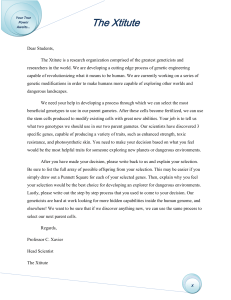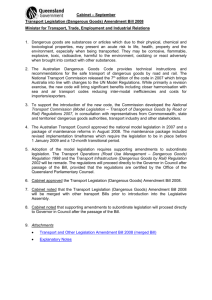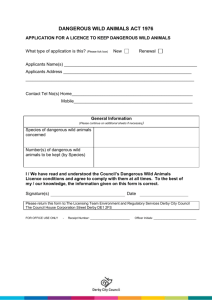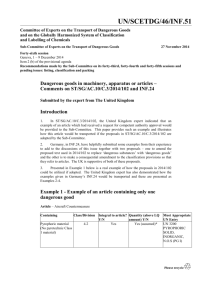Safety in road tunnels
advertisement
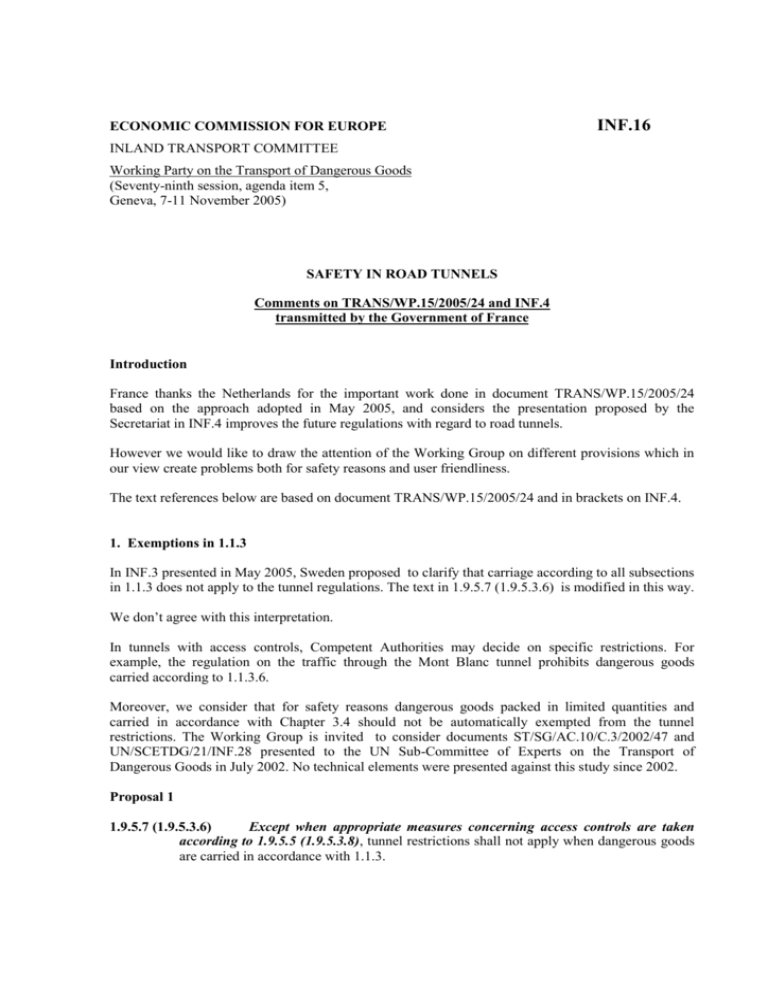
ECONOMIC COMMISSION FOR EUROPE INF.16 INLAND TRANSPORT COMMITTEE Working Party on the Transport of Dangerous Goods (Seventy-ninth session, agenda item 5, Geneva, 7-11 November 2005) SAFETY IN ROAD TUNNELS Comments on TRANS/WP.15/2005/24 and INF.4 transmitted by the Government of France Introduction France thanks the Netherlands for the important work done in document TRANS/WP.15/2005/24 based on the approach adopted in May 2005, and considers the presentation proposed by the Secretariat in INF.4 improves the future regulations with regard to road tunnels. However we would like to draw the attention of the Working Group on different provisions which in our view create problems both for safety reasons and user friendliness. The text references below are based on document TRANS/WP.15/2005/24 and in brackets on INF.4. 1. Exemptions in 1.1.3 In INF.3 presented in May 2005, Sweden proposed to clarify that carriage according to all subsections in 1.1.3 does not apply to the tunnel regulations. The text in 1.9.5.7 (1.9.5.3.6) is modified in this way. We don’t agree with this interpretation. In tunnels with access controls, Competent Authorities may decide on specific restrictions. For example, the regulation on the traffic through the Mont Blanc tunnel prohibits dangerous goods carried according to 1.1.3.6. Moreover, we consider that for safety reasons dangerous goods packed in limited quantities and carried in accordance with Chapter 3.4 should not be automatically exempted from the tunnel restrictions. The Working Group is invited to consider documents ST/SG/AC.10/C.3/2002/47 and UN/SCETDG/21/INF.28 presented to the UN Sub-Committee of Experts on the Transport of Dangerous Goods in July 2002. No technical elements were presented against this study since 2002. Proposal 1 1.9.5.7 (1.9.5.3.6) Except when appropriate measures concerning access controls are taken according to 1.9.5.5 (1.9.5.3.8), tunnel restrictions shall not apply when dangerous goods are carried in accordance with 1.1.3. INF.16 page 2 2. Dangerous goods packed in limited quantities The subject of dangerous goods packed in limited quantities is still being discussed by the UN SubCommittee of Experts on the Transport of Dangerous Goods and it seems difficult to find a harmonization between the different modal rules for these transports. It might be necessary to come back to this problem later, but in the meantime the WP.15 may adopt provisions for the carriage of goods packed in limited quantities, concerning documentation and marking. We consider that ADR should prescribe a transport document and orange-coloured plate marking for vehicles carrying certain amount of dangerous goods packed in limited quantities (12 tonnes could be a reasonable limit allowing delivery transport to stay out of the scope). In the frame of the Zurich Group, the Ministers of Transport from Austria, France, Germany, Italy and Switzerland regularly meet to deal with questions of road traffic in the Alps. After several major accidents, this Group is worried about safety problems in tunnels and the risk associated to the transport of dangerous goods packed in limited quantities, but which can reach a huge quantity in the transport unit. France will raise the question of the carriage of dangerous goods packed in limited quantities during the next meeting of this Group, on the 14th November 2005. We would like to know the opinion of the Working Group on the two items, transport document and marking. A formal proposal will be presented in May 2006. 3. Alternative itineraries The wording in 1.9.5.6 (1.9.5.3.4) creates some problems of application. The aim of this provision is to give information sufficiently in advance to allow the carrier to choose an other route if necessary. Alternative itineraries cannot be prescribed. Proposal 3 1.9.5.6 (1.9.5.3.4) Traffic signs and signals intended to prohibit access of vehicles carrying dangerous goods to road tunnels shall be affixed at a place where the choice of accompanied with, or preceded by, signs and signals indicating or prescribing alternative itineraries is possible. ____________
